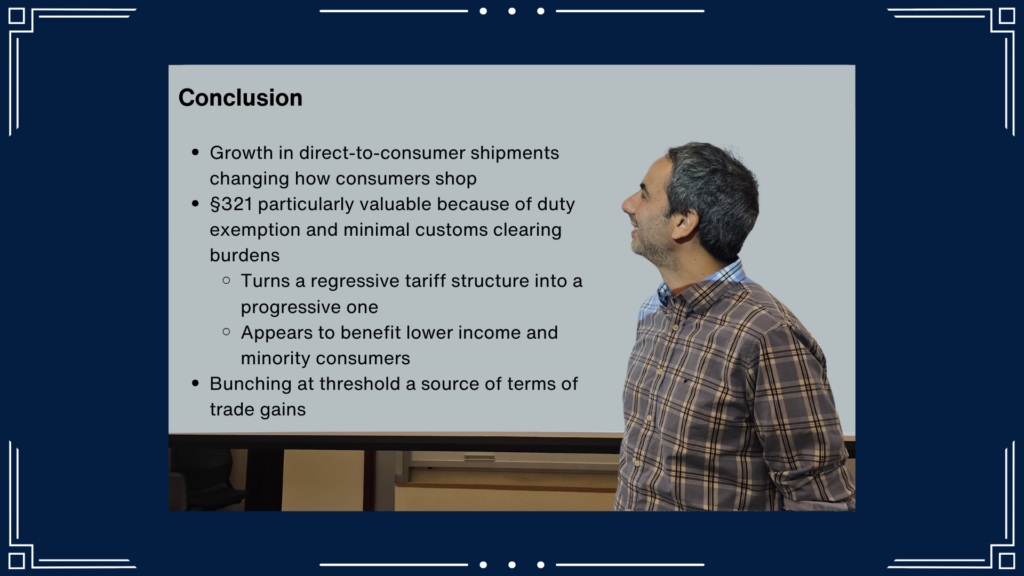International Economics Seminar Series: Direct-to-Consumer Imports and the US Tariff Act with Pablo Fajgelbaum, UCLA
Posted in News | Tagged International Economics Seminar, News - Digital Economy
During this week’s International Economics Seminar, Pablo Fajgelbaum, Professor of Economics at UCLA and a research associate at the NBER, presented novel research on the consumer implications of direct-to-consumer imports and Section 321 of the U.S. Tariff Act. This provision, which includes de minimis rules, allows U.S. consumers to import goods valued at up to $800 per day without incurring duties or taxes. The relevance of this rule has grown significantly with the rise of direct-to-consumer platforms like Shein, Temu, and AliExpress. The total value of de minimis imports surged from $53 million in 2012 to $54 billion in 2023.
Coauthored with Amit Khandelwal, the study leverages a detailed dataset from three international carriers to reveal that de minimis imports are disproportionately utilized in lower-income zip codes, with a large share originating from China. These findings suggest that the provision effectively transforms a regressive tariff structure into a progressive mechanism, delivering significant benefits to lower-income and minority consumers. The analysis further indicates that repealing the de minimis provision, commonly referred to as “Section 321,” would lead to a decline in aggregate welfare.

